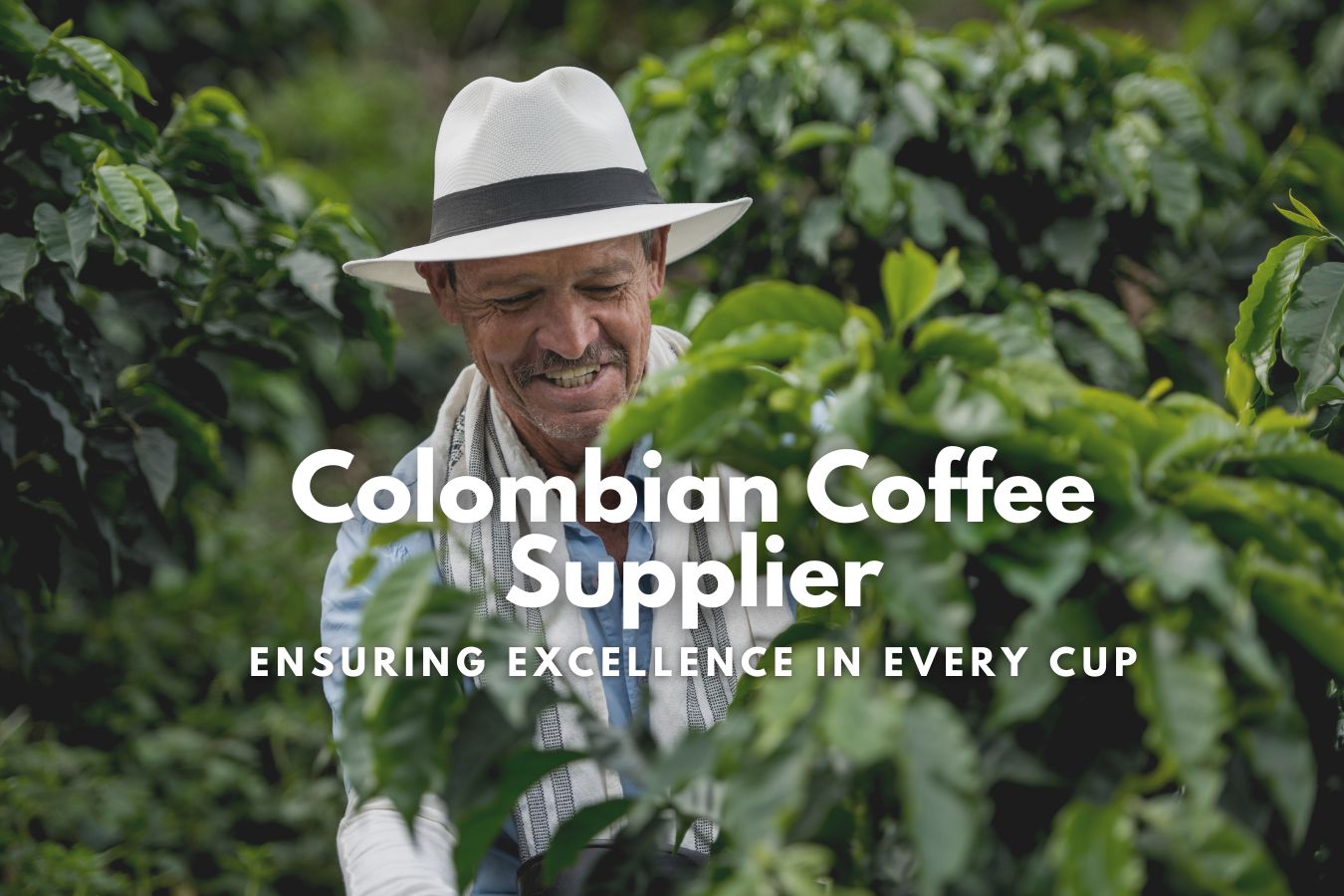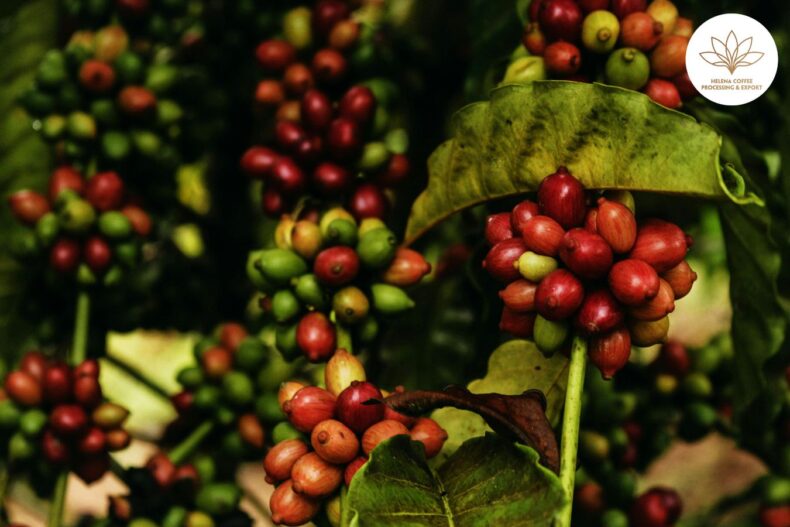
Coffee lovers around the world can’t resist the allure of Colombian coffee. Its rich and distinct flavors and smooth and balanced profile make it a favorite choice for casual drinkers and connoisseurs. Suppose you’re searching for a reliable Colombian coffee supplier to fulfill your caffeine cravings or elevate your business.
In that case, this article will guide you through the intricacies of Colombian coffee production, help you understand what sets it apart, and provide essential tips for finding the perfect supplier.
Introduction Colombian Coffee Supplier
Colombian coffee has a legendary reputation in the coffee industry, and rightfully so. For centuries, Colombia has been recognized as one of the premier coffee-growing regions in the world, producing exceptional beans that capture the hearts and palates of coffee enthusiasts globally. But what makes Colombian coffee so unique? Let’s delve into its rich history and unique characteristics.
The Rich History of Colombian Coffee
Coffee cultivation in Colombia traces back to the early 18th century when Jesuit priests introduced the crop. Over time, coffee production became an integral part of the country’s economy, shaping its cultural identity and fostering a deep appreciation for the art of coffee. Today, Colombia is the third-largest coffee producer globally, renowned for its commitment to quality and sustainability.
Colombian Coffee’s Unique Characteristics
Its exceptional quality and taste profile distinguish Colombian coffee from its counterparts. The combination of ideal growing conditions, including high-altitude regions, rich volcanic soil, and a favorable climate, contributes to the unique flavors found in Colombian coffee. The beans boast a well-balanced acidity, a medium body, and delightful notes of caramel, chocolate, and citrus, making them a versatile choice for various brewing methods.
Factors Contributing to Colombia’s Superior Coffee Quality
Colombia’s commitment to quality is deeply ingrained in its coffee production processes. The National Federation of Coffee Growers of Colombia (FNC) ensures strict adherence to quality control measures throughout the supply chain. From hand-picking only ripe cherries to accurate processing and roasting techniques, every step is carefully executed to preserve the integrity of the coffee beans. Additionally, the following factors contribute to Colombia’s superior coffee quality:
Colombian Coffee Growing Regions
Colombia is blessed with diverse microclimates and regions that provide ideal conditions for coffee cultivation. Let’s explore some of the prominent coffee-growing areas of the country:
Coffee Triangle
Located in the central part of the country, the Coffee Triangle comprises the departments of Caldas, Quindio, and Risaralda. This region is known for its fertile volcanic soil and high altitudes, contributing to the coffee’s exceptional quality and flavor complexity.
Sierra Nevada de Santa Marta
Situated on the northern coast of Colombia, the Sierra Nevada de Santa Marta region is known for its unique microclimates and diverse flora and fauna. The coffee grown in this region benefits from the mountainous terrain, cool temperatures, and a rich ecological balance that enhances its distinctive characteristics.
Eastern Plains
The Eastern Plains, also known as Los Llanos, is an emerging coffee region in Colombia. Its vast plains and the region’s unique climate and soil conditions offer new opportunities for coffee production. The coffee cultivated here exhibits distinct flavors and promises exciting potential for the future of Colombian coffee.
The Importance of Sustainability in Colombian Coffee Production
Sustainability plays a crucial role in Colombian coffee production, as it ensures the long-term viability of the industry while minimizing its environmental impact and promoting social responsibility. Colombian coffee is renowned worldwide for its high quality and unique flavor profiles, and maintaining sustainable practices is vital for preserving these characteristics for future generations.
- Environmental Conservation: Sustainable coffee production in Colombia focuses on preserving biodiversity, conserving water resources, and minimizing deforestation. Coffee farms implement agroforestry systems, where shade trees are planted alongside coffee plants to provide habitat for birds and other wildlife. This approach helps maintain a healthy ecosystem, prevents soil erosion, and reduces the need for synthetic pesticides and fertilizers. Additionally, sustainable coffee production encourages the use of renewable energy sources and efficient water management techniques.
- Climate Change Adaptation: Colombian coffee farmers are facing the impacts of climate change, including unpredictable weather patterns and increased pest and disease outbreaks. Sustainability practices help build resilience against these challenges. Farmers are adopting climate-smart agriculture techniques, such as using drought-tolerant coffee varieties and implementing soil conservation methods. By adapting to changing climatic conditions, Colombian coffee producers can safeguard their crops and livelihoods.
- Social Responsibility: Sustainable coffee production in Colombia goes beyond environmental concerns and encompasses social aspects as well. Fair trade practices ensure that farmers receive fair compensation for their hard work, improving their standard of living and providing access to education and healthcare. Additionally, sustainable initiatives promote gender equality, support indigenous communities, and discourage child labor. By fostering social responsibility, Colombian coffee production becomes a vehicle for positive social change.
- Economic Stability: The sustainability of Colombian coffee production is closely linked to the economic stability of coffee farmers and the industry as a whole. Sustainable practices help improve productivity, enhance the quality of coffee beans, and diversify income sources. By implementing efficient farming techniques and investing in infrastructure, farmers can increase their yields and profitability. This, in turn, contributes to the overall economic development of rural communities and reduces their dependency on volatile coffee prices.
- Market Access and Consumer Demand: In recent years, there has been a growing global demand for sustainably produced goods, including coffee. Consumers are becoming more conscious of the environmental and social impact of their purchasing decisions. Colombian coffee farmers who adopt sustainable practices gain a competitive advantage in the market, as they can access premium markets and cater to the preferences of environmentally and socially conscious consumers. Emphasizing sustainability helps build brand reputation and secure long-term market access.
In conclusion, sustainability is of utmost importance in Colombian coffee production. By adopting sustainable practices, coffee farmers can protect the environment, adapt to climate change, promote social responsibility, ensure economic stability, and meet the demands of an increasingly conscious global market. The commitment to sustainability not only safeguards the future of Colombian coffee but also contributes to a more sustainable and equitable world.
Colombian Coffee Supplier: Finding the Right Partner
When searching for a Colombian coffee supplier, several key considerations can help you find the perfect partner to meet your needs. Let’s explore these factors in detail:
Quality Standards and Certifications
Ensure the supplier adheres to strict quality standards and holds relevant certifications such as Rainforest Alliance, UTZ, or Fair Trade. These certifications guarantee that the coffee you receive meets stringent quality and sustainability criteria.
Direct Trade and Relationship Building
Look for suppliers who engage in direct trade practices, establishing long-term relationships with coffee farmers. Direct trade fosters transparency, fair prices, and mutual support, ensuring farmers receive their fair share while promoting sustainable farming practices.
Supply Chain and Logistics
Evaluate the supplier’s supply chain capabilities and logistical efficiency. Timely delivery, proper storage, and reliable shipping methods are crucial to ensuring the freshness and quality of the coffee beans.
Benefits of Working with a Colombian Coffee Supplier
Partnering with a Colombian coffee supplier offers numerous benefits. Here are some advantages you can expect:
Superior Quality and Taste
Colombian coffee is celebrated for its superior quality and exceptional taste. Working with a Colombian coffee supplier guarantees you’ll receive beans that meet the highest standards, providing a delightful coffee experience for yourself or your customers.
Reliable and Consistent Supply
Colombia’s well-established coffee industry ensures a consistent and reliable supply of coffee beans. By partnering with a reputable Colombian coffee supplier, you can rest assured knowing that your coffee orders will be fulfilled promptly and consistently, allowing you to meet your customers’ demands without disruptions.
Access to Specialty and Single-Origin Coffees
Colombia is renowned for its specialty and single-origin coffees, which showcase unique flavor profiles specific to different regions and farms. Working with a Colombian coffee supplier grants you access to a diverse range of coffees, allowing you to offer your customers an exciting variety and cater to different preferences.
Support for Sustainable Practices
By choosing a Colombian coffee supplier committed to sustainability, you preserve the environment and the well-being of coffee farming communities. Supporting sustainable practices helps promote social responsibility and ensures a more sustainable future for the coffee industry.
How to Choose the Best Colombian Coffee Supplier
Selecting the right Colombian coffee supplier for your needs requires careful consideration. Keep the following factors in mind during your search:
Reputation and Experience
Look for suppliers with a strong reputation and extensive experience in the coffee industry. A supplier with a track record of delivering high-quality products and excellent customer service will likely meet your expectations.
Product Selection and Customization
Consider your specific coffee requirements and ensure the supplier offers various Colombian coffees. Whether you need blends, single-origin beans, or customized options, finding a supplier with a comprehensive product selection will help fulfill your unique needs.
Pricing and Payment Terms
Evaluate the pricing structure and payment terms offered by different suppliers. While cost is important, prioritize quality and consistency over price alone. A transparent pricing model and flexible payment options can contribute to a successful partnership.
Customer Support and Communication
Effective communication and reliable customer support are crucial for a smooth business relationship. Choose a responsive supplier that is attentive to your needs, and provides clear channels of communication to address any inquiries or concerns.
Conclusion
Colombian coffee holds a special place in the hearts of coffee lovers worldwide thanks to its rich history, exceptional quality, and commitment to sustainability. Finding the right Colombian coffee supplier ensures that you can savor the unique flavors of Colombian coffee while supporting responsible and ethical practices in the industry.
By considering quality, sustainability, and the supplier’s capabilities, you can establish a fruitful partnership that brings excellence to every cup.
FAQs
1. Where can I buy Colombian coffee?
Colombian coffee is widely available both online and in specialty coffee shops. You can explore reputable coffee roasters and distributors who source directly from Colombian farmers to ensure authenticity and quality.
2. Is Colombian coffee more expensive than other varieties?
The price of Colombian coffee can vary depending on factors such as the beans’ quality, rarity, and certifications. While some Colombian specialty coffees may command a higher price, affordable options suit different budgets.
3. How can I ensure the freshness of Colombian coffee?
To ensure your Colombian coffee’s freshness, purchase recently roasted beans and package them in airtight bags. Store them in a cool, dry place away from sunlight and grind them just before brewing for the best flavor.
4. Are Colombian coffee suppliers eco-friendly?
Many Colombian coffee suppliers prioritize sustainability and eco-friendly practices. Look for certifications such as Rainforest Alliance or organic to ensure the supplier is committed to environmental preservation.


